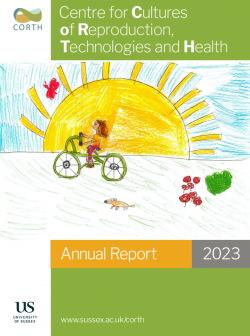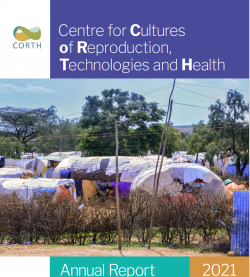Based in the School of Global Studies, the Centre for Cultures of Reproduction, Technologies and Health (CORTH) focuses on analyses of the intersections between cultures of human reproduction, social identities, health and technologies.
CORTH Newsletter (Autumn 2024) Newsletter [PDF 20.15MB]
Contact CORTHDirector of CORTH: Professor Maya Unnithan CORTH Administrator: Amy Collyer Twitter: @CORTHSussex Address: Centre for Cultures of Reproduction, Technologies and Health Telephone: +44 (0)1273 877185 |
|







